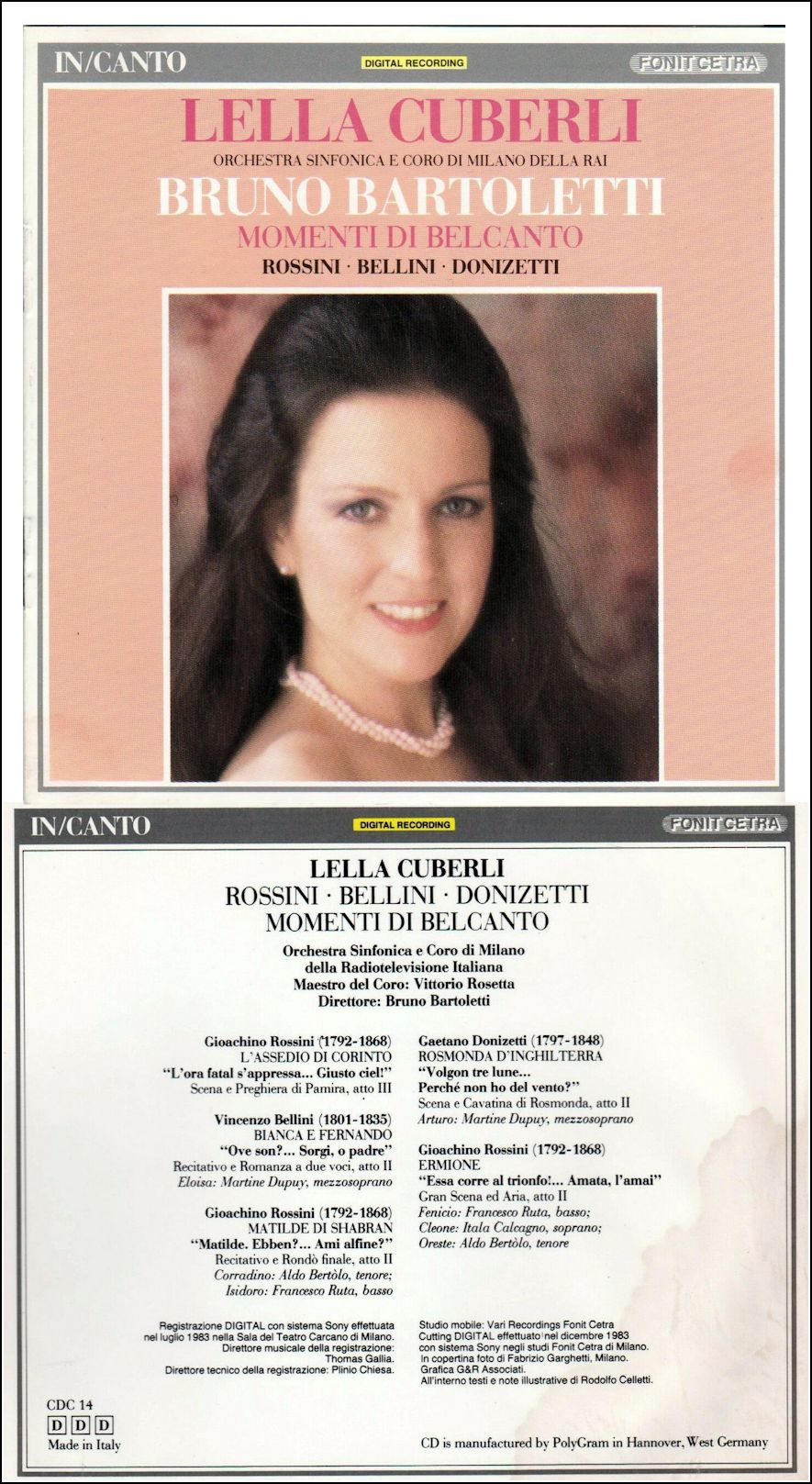

|
Lella Cuberli (born September 29, 1945) is an American soprano, particularly associated with the Belcanto repertory. Born Lela Alice Terrell in Austin, Texas, she studied in Dallas and later in Milan. She made her professional debut in Siena, in 1973, and for some years pursued her career mainly in Italy, making her mark in Rossini, Donizetti and Bellini operas. She sang at Martina Franca from 1976 to 1982, as Amenaide, Adalgisa, and in Paisiello operas. She appeared at La Scala from 1978 to 1985, as Aminta, Ginevra, Rodelinda, Giunia, Contessa di Folleville. Other roles at the major opera houses of Italy have included Donna Anna, Fiordiligi, Rossini's Elisabetta and Desdemona, etc. She also appeared at the Paris Opéra, the Aix-en-Provence Festival, the Vienna State Opera and the Salzburg Festival. Returning to the United States, she made her debut at the Lyric Opera of Chicago in 1989, as Amenaide, and at the Metropolitan Opera in 1990, as Semiramide. In 1990, she also made her debut at Covent Garden in London, as Mathilde. She can be heard on disc in works by Mozart, notably in Daniel Barenboim's recording cycle of the Lorenzo Da Ponte's operas, Le nozze di Figaro, Don Giovanni, Cosi fan tutte. She also recorded Giunia in Mozart's Lucio Silla and the Great Mass in C minor under James Levine, the soprano part in Herbert von Karajan's recording of the Beethoven's Missa Solemnis and the 9th Symphony, Rossini's Il viaggio a Reims and Tancredi, and Donizetti's Pia de' Tolomei. She has also recorded two solo recitals of works by Donizetti, Bellini, Rossini, Pergolesi and Mozart. Her teaching career includes the University of North Texas during
the Spring Semester of 2008, master classes in Milan (shown below),
and the Lyric Opera Intensive of Rome in August/September of 2016.
|
|
WASHINGTON, July 20—The National Opera Institute, with a two‐year budget of nearly $1‐million, was formally established today by some of the country's leading promoters of the arts. [Note: It would later be called the National Institute for Music Theater.] Roger L. Stevens, the institute's president and chairman of the board of trustees of the John F. Kennedy Center for the Performing, Arts. said the institute would “encourage the growth and development of opera in the United States.” Julius Rudel, the conductor and general director of the New York. City Opera Company, will serve as chairman. The institute, which is a private corporation, has been given a $500,000 donation by Mrs. DeWitt Wallace, co‐chairman of Reader's Digest, and a matching Federal grant from the National Endowment for the Arts. The annual budget of $475, 000 for the first two years will, according to the institute announcement, be used as follows: ¶$150,000 to “supplement production costs of new or hitherto unproduced operas,” particularly by university opera groups and other small companies. ¶$75,000 for composers and librettists as a commission for new operas. ¶$125,000 to assist promising young singers by financing training, coaching and living expenses. ¶$75,000 to send introductory opera programs and workshops into sections of the country where opera is rarely seen. “There are many areas, such as in the Plains States and the Prairies, that are too far away from cities to support a theater,” an institute official said. Although the institute's formation was officially announced today, members of the 18‐member board of trustees, who are unpaid, have been conferring for several months on how to organize the institute's programs. Grant to City Opera More than $90,000 in specific grants have already been approved, according to the institute spokesman. Among them is a $25,000 award to the New York. City Opera Company to study methods and costs in volved in developing opera films for television. “This,” the institute announcement said, “will introduce young people to the world of opera in such a way as to develop badly needed new, audiences.” The films, which could he shown on television in schools, would consist of two parts: The first offering complete background on the opera, the composer, the performers and the technicians, and the second offering the opera itself, especially prepared for television. A $25,000 award was also made to the Santa Fe Opera Company of New Mexico to finance production costs of a new opera by Luciano Berio, a composer with the Juilliard School and an institute trustee. Asked whether there was a conflict of interest involved in the institute's approving funds for activities associated with Mr. Rudel and Mr. Berio, an institute spokesman said: “Our legal counsel has advised us that there is no conflict. We have the leading composers and companies in the opera world represented on our board. It would be nearly impossible to reward outstanding opera that is not in some way connected with them.” Among the institute's trustees, in addition to Mr. Berio, are: Prentis Cobb Hale, president of the San Francisco Opera Association; Irving Kolodin, music critic of The Saturday Review; George London, artistic director of the Kennedy center; George S. Moore, president of the Metropolitan Opera Association, and John Walker, former director of the National Gallery of Art. Other grants made were to the Seattle
Opera Association ($17,500), to help with putting on “Dos Madres,”
a new opera, and to the Afro‐American Singing Theater of New York
($5,000), to enable it to use larger instrumental ensembles. |
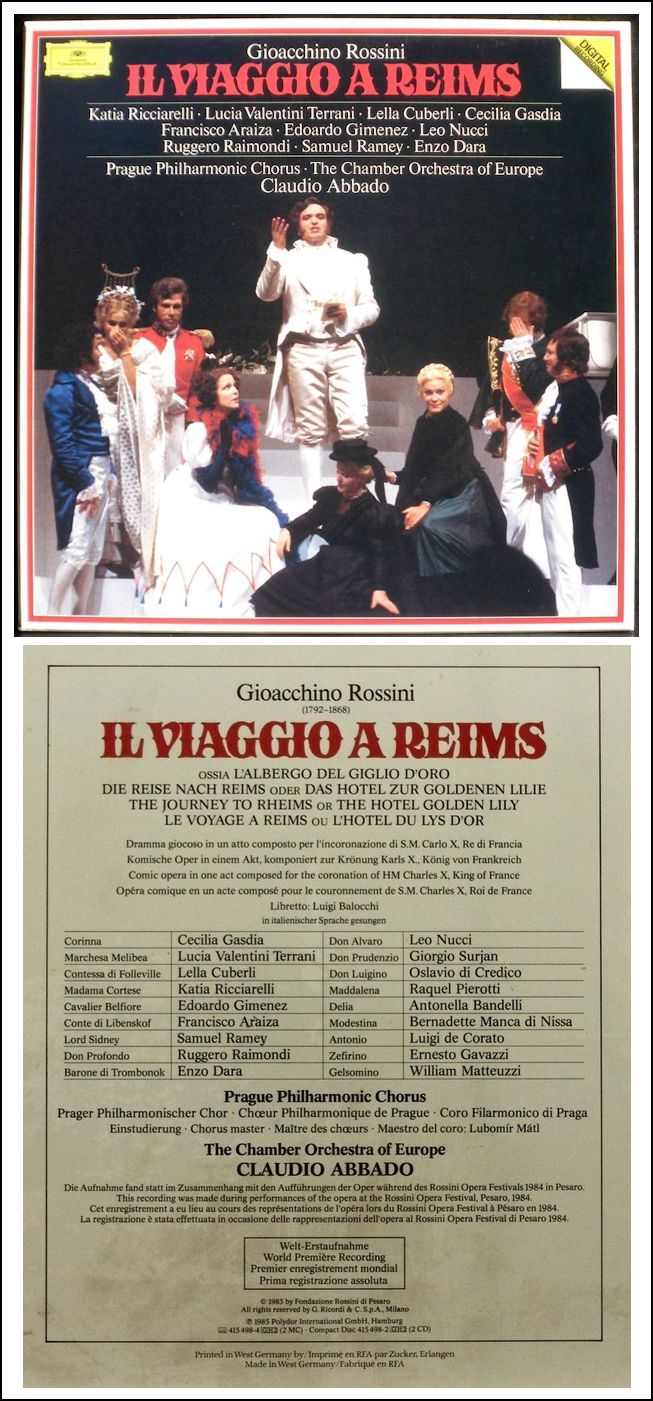
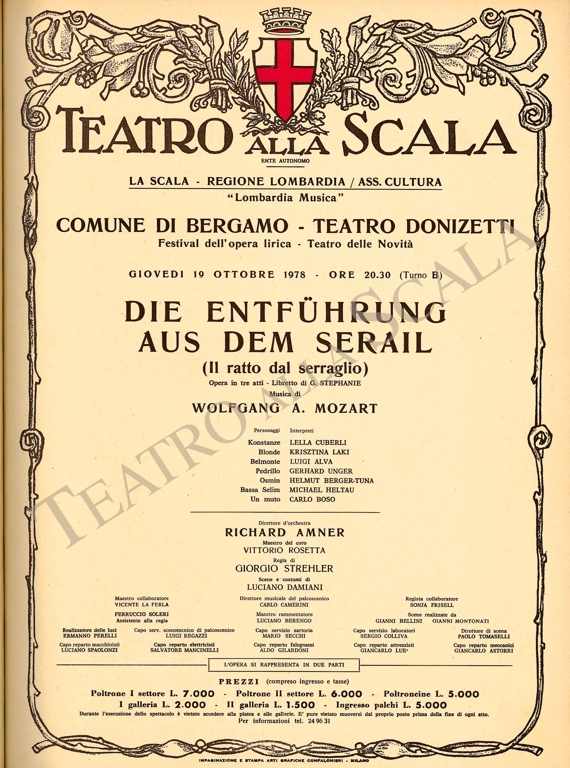 BD: People you can trust?
BD: People you can trust?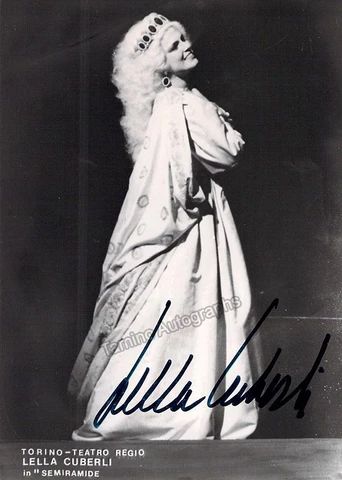 Cuberli: Thank you very much! [Laughs] I
have very good company.
Cuberli: Thank you very much! [Laughs] I
have very good company.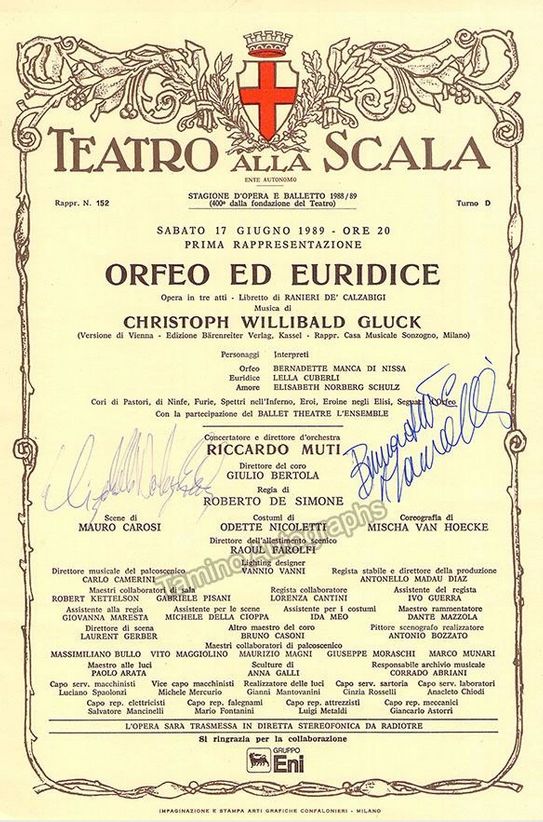 BD: Sure, get some mileage out
of it.
BD: Sure, get some mileage out
of it.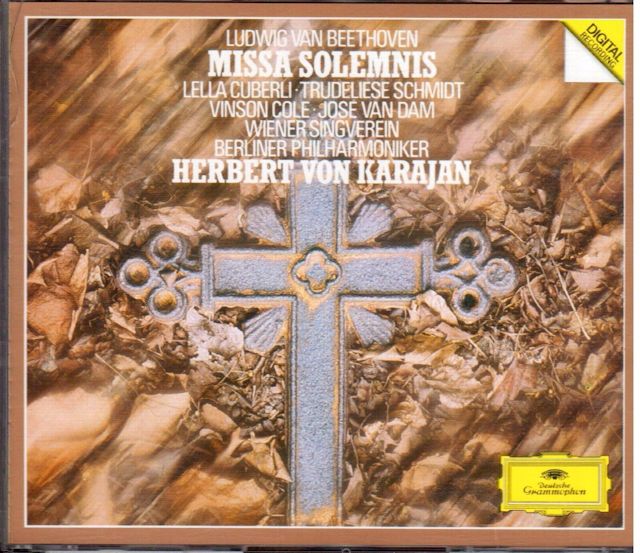 BD: Do you feel you’re more in control?
BD: Do you feel you’re more in control?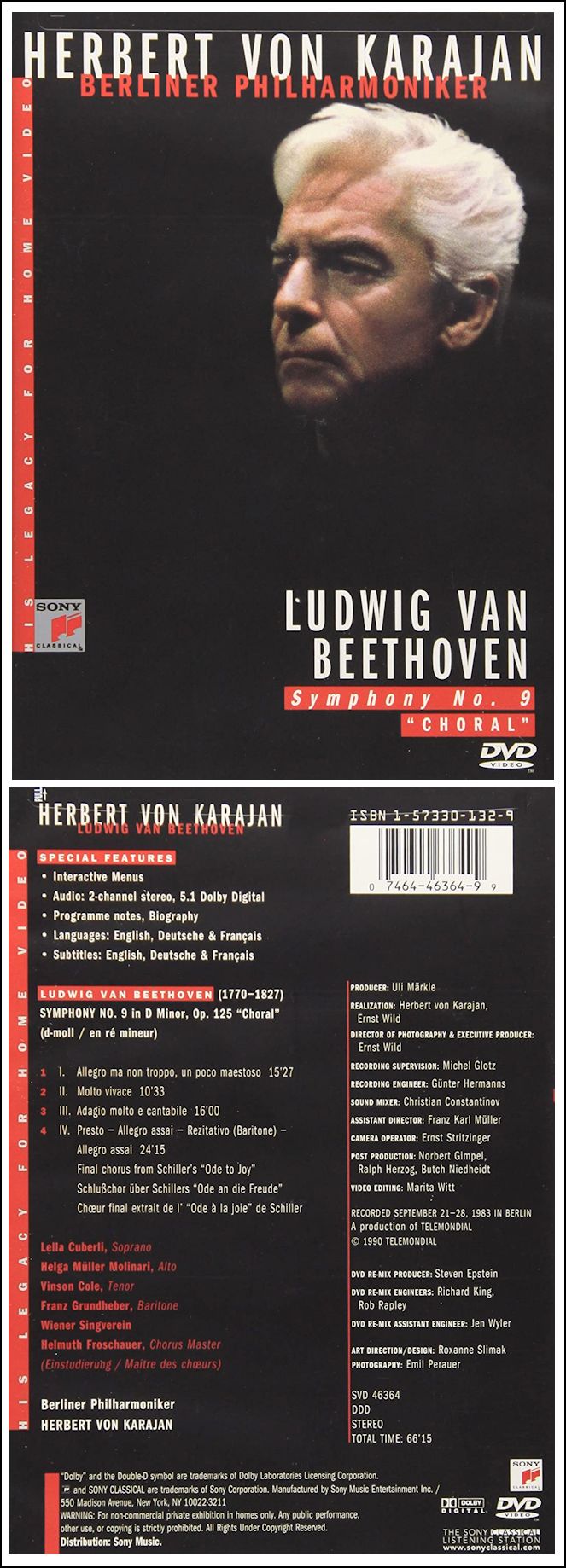 Cuberli: As with every other art
form, it enriches our lives and makes us richer people. It
widens our horizons. Why do you read a book? Why do you
look at a painting? Why do you do anything that’s concerned artistically?
It is because you want to be more interesting, because you want
to have something that’s lasting, that nobody can take from you.
You become a different person.
Cuberli: As with every other art
form, it enriches our lives and makes us richer people. It
widens our horizons. Why do you read a book? Why do you
look at a painting? Why do you do anything that’s concerned artistically?
It is because you want to be more interesting, because you want
to have something that’s lasting, that nobody can take from you.
You become a different person.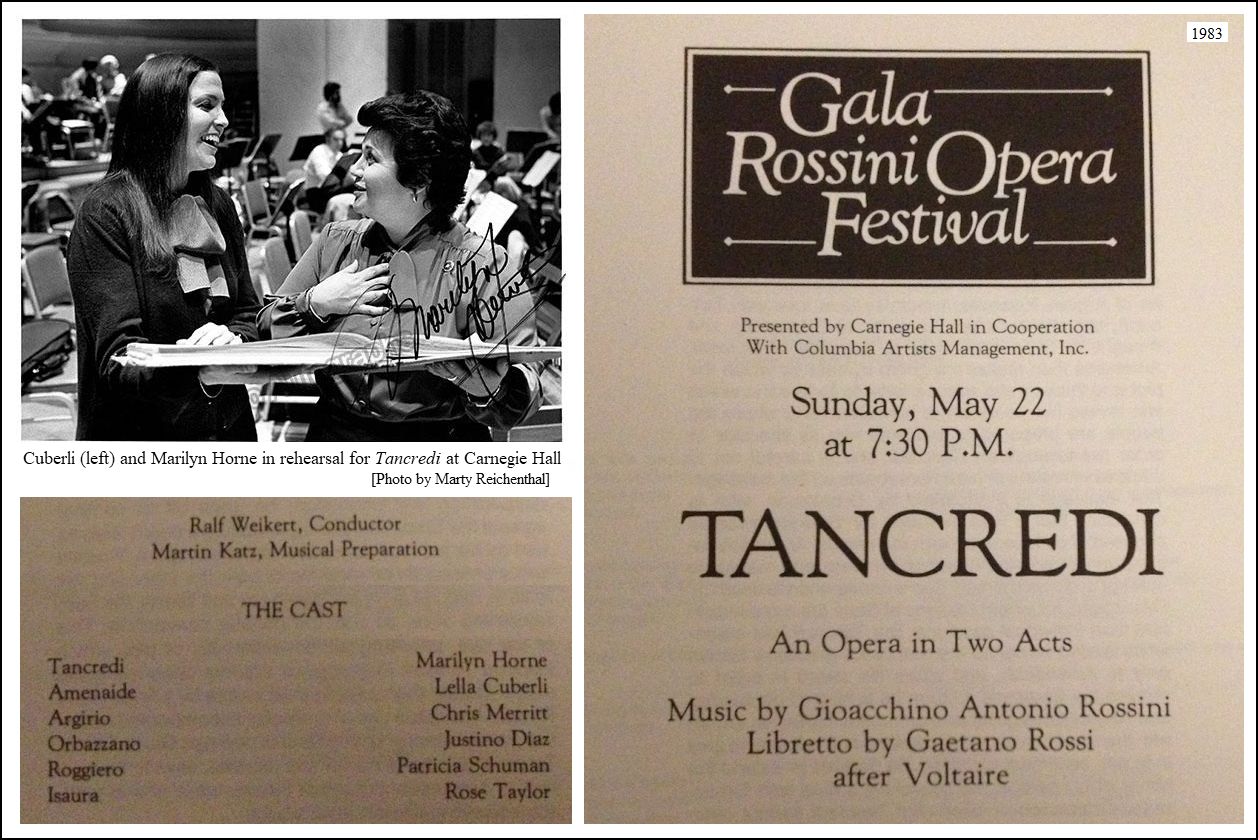
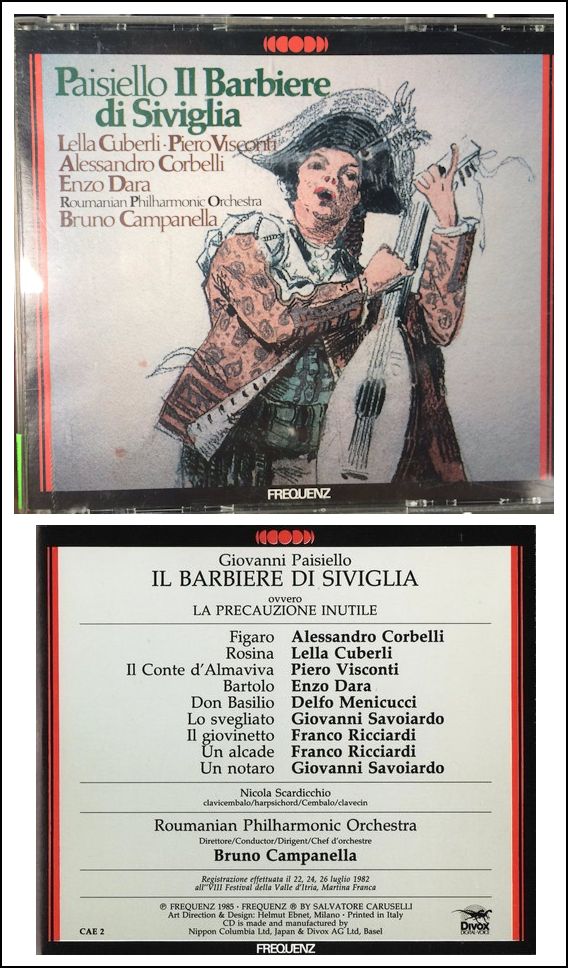 BD: Why?
BD: Why?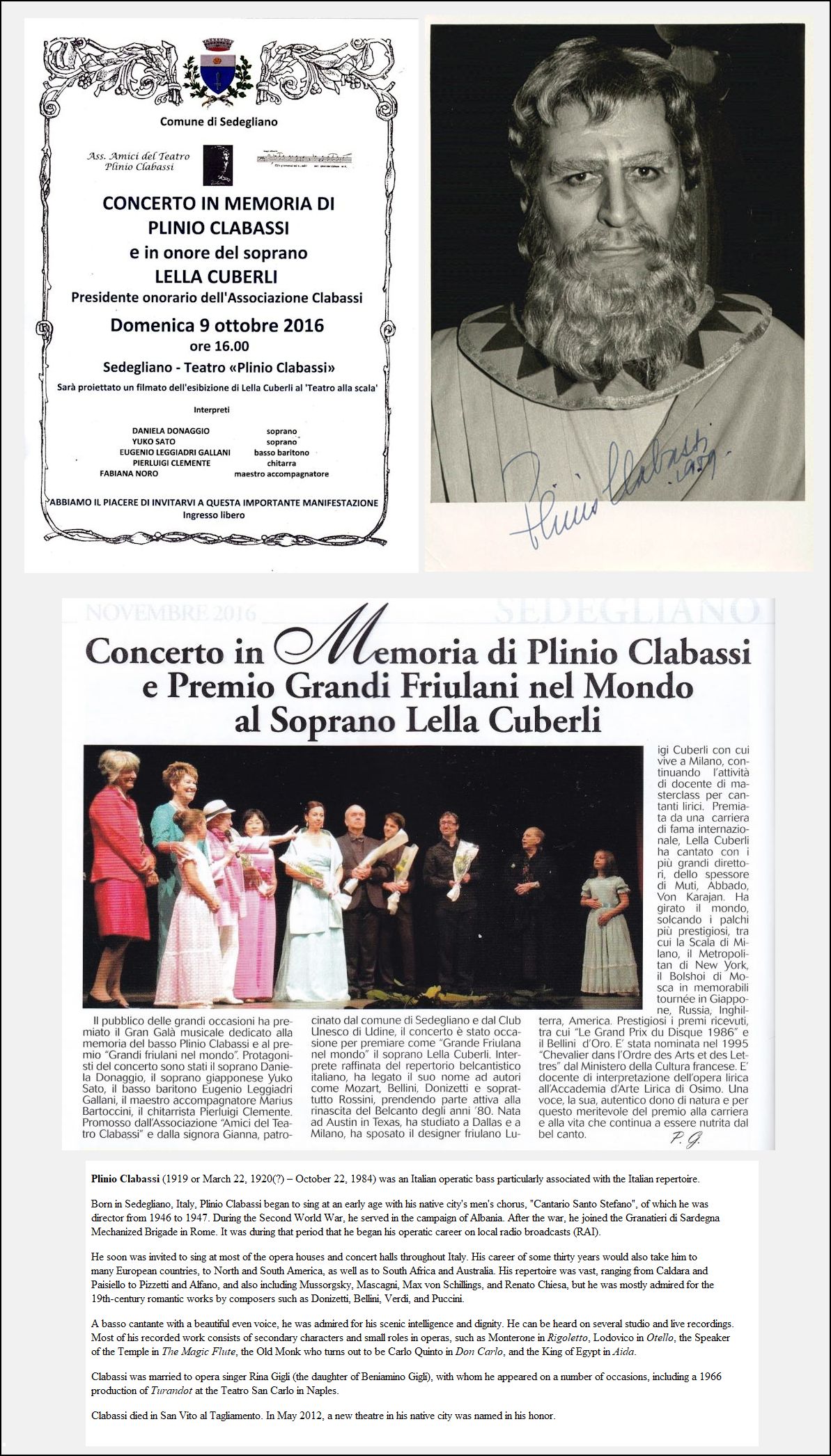
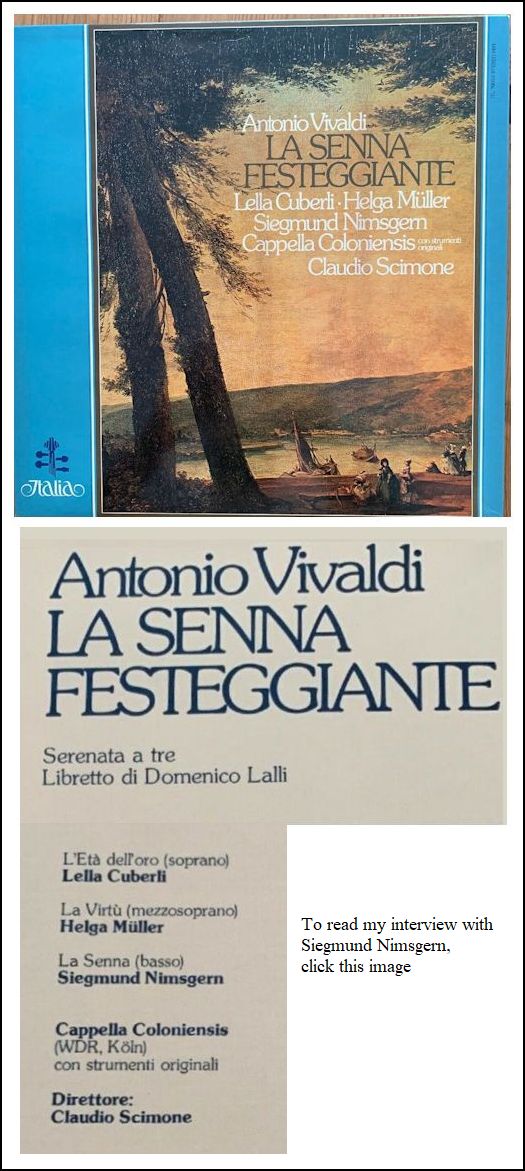 BD: How far ahead are you booked?
BD: How far ahead are you booked?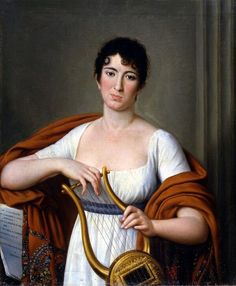
Isabella Angela Colbran (2 February 1785 – 7 October 1845) was a Spanish opera singer known in her native country as Isabel Colbrandt. Many sources note her as a dramatic coloratura soprano but some believe that she was a mezzo-soprano with a high extension, a soprano sfogato. She collaborated with opera composer Gioachino Rossini in the creation of a number of roles that remain in the repertory to this day. They were married on 22 March 1822. All his life Rossini credited Colbran as being the greatest interpreter of his music. Descriptions of Colbran's voice characterise the timbre as "sweet, mellow" with a rich middle register. Rossini's music for her suggests perfect mastery of trills, half-trills, staccato, legato, ascending and descending scales, and octave leaps. Her vocal range extended from F-sharp below the staff to E above, with a high F sometimes available. |
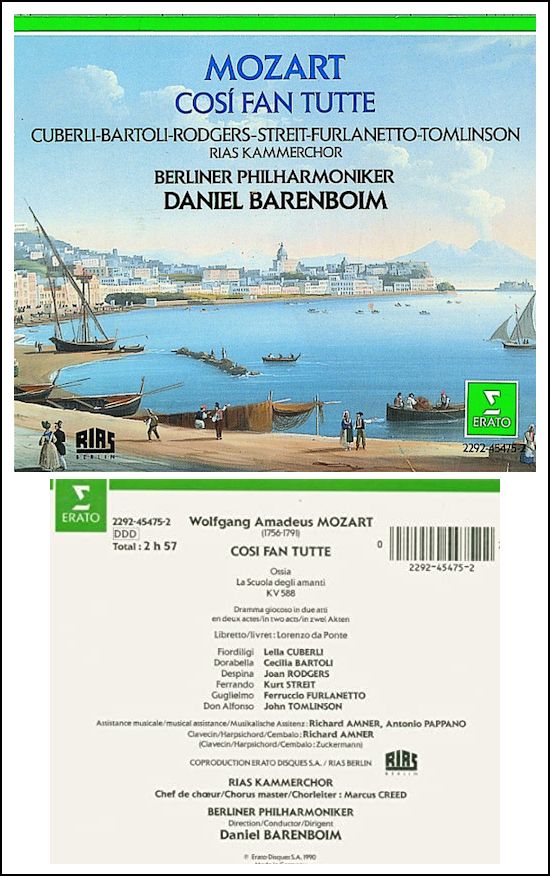
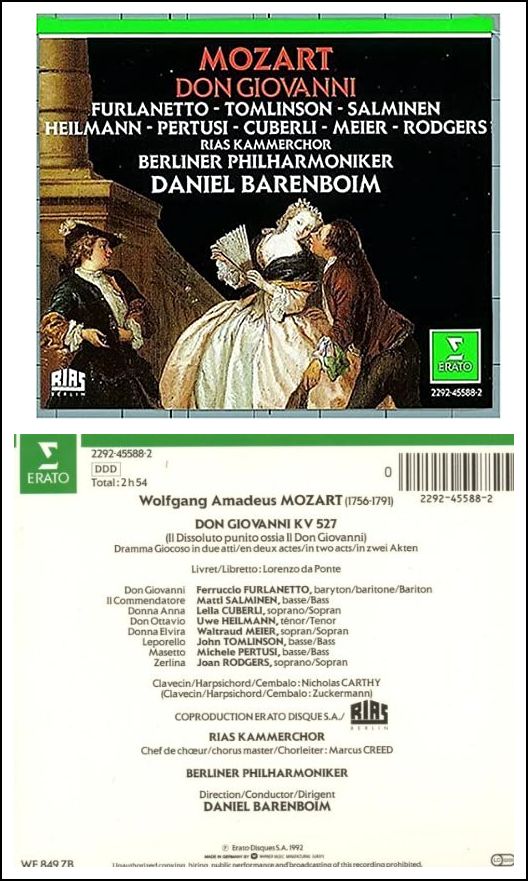 BD: Thank you for coming to Chicago.
BD: Thank you for coming to Chicago.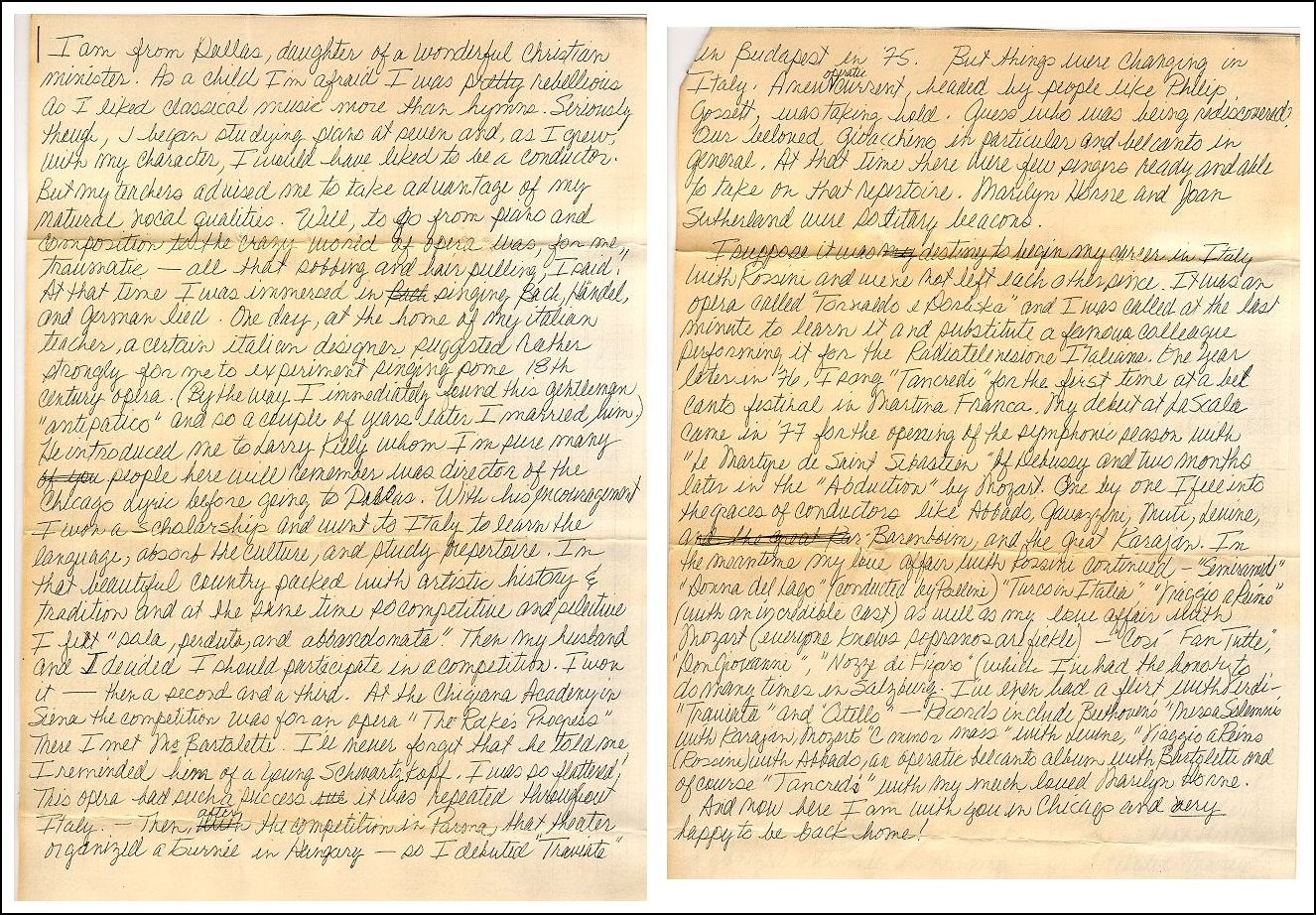
© 1989 Bruce Duffie
This conversation was recorded in Chicago on January 19, 1989. Portions were broadcast on WNIB five days later, and again in 1990, 1991, 1995 and 2000. This transcription was made in 2020, and posted on this website shortly thereafter. My thanks to British soprano Una Barry for her help in preparing this website presentation.
To see a full list (with links) of interviews which have been transcribed and posted on this website, click here. To read my thoughts on editing these interviews for print, as well as a few other interesting observations, click here.
Award - winning broadcaster Bruce Duffie was with WNIB, Classical 97 in Chicago from 1975 until its final moment as a classical station in February of 2001. His interviews have also appeared in various magazines and journals since 1980, and he now continues his broadcast series on WNUR-FM, as well as on Contemporary Classical Internet Radio.
You are invited to visit his website for more information about his work, including selected transcripts of other interviews, plus a full list of his guests. He would also like to call your attention to the photos and information about his grandfather, who was a pioneer in the automotive field more than a century ago. You may also send him E-Mail with comments, questions and suggestions.